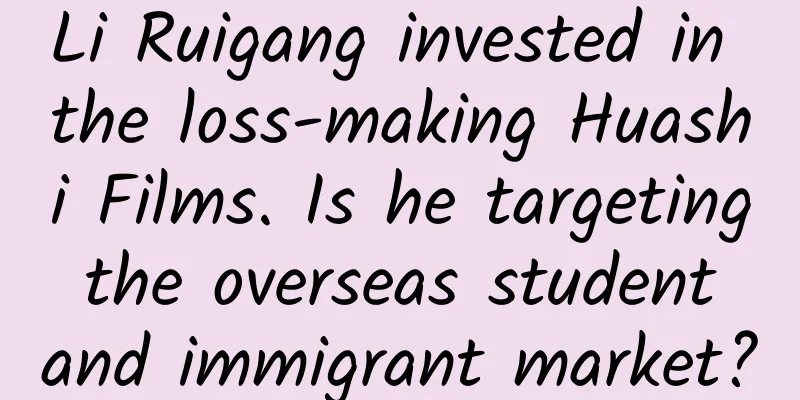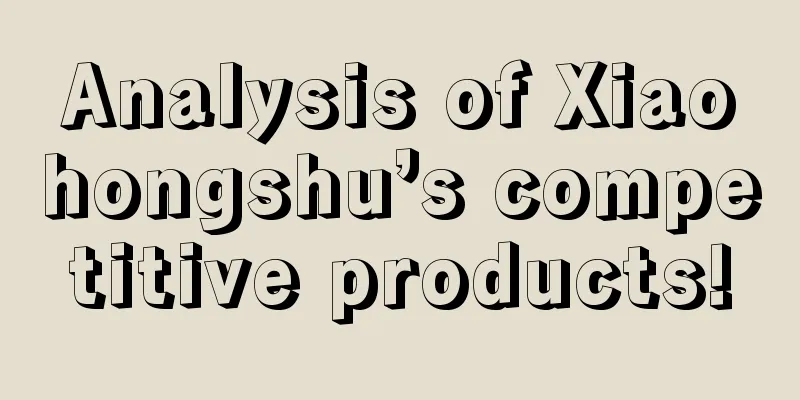Domestic operating systems: How can small companies with only a few hundred employees compete?

|
On March 31, Ni Guangnan, an academician of the Chinese Academy of Engineering, who is known as the "promoter of China's intelligent terminal operating system", appeared at the 3rd China International Cloud Computing Technology and Application Exhibition and Forum. In his keynote speech on intelligent terminal operating systems, he said: "Our intelligent terminal operating systems are all single-handedly fought, and each company is doing it on its own. We have 15 operating system companies, all of which are small companies with about 100 people. They are constantly fighting among themselves. How can they compete with Microsoft?" Operating systems are divided into three categories according to scenarios There are many ways to classify operating systems. Academician Ni Guangnan particularly emphasized that he does not classify operating systems according to the textbook method, but according to the application scenario. He believes that according to the application scenario, operating systems can be divided into the following three categories: The first is the server operating system that provides the service, that is, the operating system used by the servers in the cloud service provider's data center. The second type is operating systems that receive information services, such as various information terminals and smart terminals, from traditional PCs to mobile phones, wearable devices, car terminals and smart homes. "I think this category is similar, all of them receive information services, the screen sizes are different, the operation methods are different, but the basic function is to receive services," said Academician Ni Guangnan. The third category is embedded operating systems. There are many operating systems of this category, and many domestic ones are also quite good. "Server operating systems have been well developed and there is no monopoly. Everyone can develop through market competition. The second category is smart terminal operating systems, which currently include Apple's iOS, Microsoft's Windows and Google's Android." Academician Ni Guangnan said in a serious tone, "We hope to be the fourth one. Whether we can do it is our problem. If we can't do it, it's because we are not motivated enough. China has talents, markets and money. Why can't we be the fourth one?" Top-level design requires integration of resources Academician Ni Guangnan said that in terms of information security, antivirus software is on the periphery after all. The peripheral antivirus software may not be able to block any operations that the terminal operating system wants to perform, because the operating system can also communicate with the outside world through other means of communication. Currently, among the three major mobile operating systems in the world, iOS and Android have the largest market share; while the computer desktop operating system is still dominated by XP, followed by Windows 7. Ni Guangnan believes that the smart terminal operating system is the core of the information field, and one of the important reasons why Apple has done so well is that it has mastered the operating system iOS. "Whoever can master the mobile operating system can become the core of the information field ecosystem." He said. Regarding the current status of domestic terminal operating systems, Academician Ni Guangnan pointed out incisively: "Our operating systems are all developed individually by each company. We have 15 operating system companies, all of which are small companies with about 100 people. They are constantly fighting among themselves. How can they compete with Microsoft?" "Everyone is doing low-level repetitive research and lacks innovation. We don't see foreign products monopolizing the market, but only focusing on small markets," he said. Why can't we make a small terminal operating system? Academician Ni Guangnan analyzed that there are three main reasons: First, the strength of Chinese companies is still relatively weak. From the perspective of market value, the market value of Chinese companies is only about 1/3 of their American counterparts. Second, the innovation ability is not strong enough and needs to be continuously improved. Although a few companies like Huawei are in the forefront, most companies lack innovation capabilities. Third, there is no national will and a lack of top-level design. "Beidou is not made by any one company, but is a unified deployment of the country. The strength of high-speed rail is also achieved by the integration of national resources," Ni Guangnan further said, "Now we should carry forward the spirit of 'two bombs and one satellite' and manned space flight. Like Beidou navigation, national resources should be used to do a good job in top-level design and concentrate on doing one big thing, which is to develop China's own smart terminal operating system. China has such conditions." Academician Ni Guangnan is the initiator and supporter of the Intelligent Terminal Operating System Industry Alliance. He believes that through the industrial alliance, resources can be better integrated. At the same time, the industrial alliance is also a way of industrial innovation and can absorb private capital. It is reported that China Electronics Technology Group Corporation is now the chairman unit of the Intelligent Terminal Operating System Industry Alliance. Find the breakthrough point to break the monopoly As we all know, Microsoft has had a monopoly on desktop operating systems for almost 30 years, and it is still a monopoly. Although Apple and Android have become the dominant players in mobile operating systems, they are unable to shake Microsoft's position as the leader in computer operating systems. Obviously, it is difficult to break the monopoly of operating systems. In the view of Academician Ni Guangnan, Microsoft's unilateral cessation of providing maintenance services for the XP system is undoubtedly an opportunity. "Many Chinese users are still using the XP system, and Microsoft does not provide services. Domestic operating systems should seize this opportunity and hope to replace Microsoft's XP system within one or two years." He said. The success of Apple's iOS and Android systems is undoubtedly due to the advanced application store model. Academician Ni Guangnan believes that domestic operating systems should also improve their competitiveness through innovation in the application store model. "The competition in operating systems is not a simple software competition, but an ecosystem competition," he said. Indeed, although the Windows Phone system is also very good, it is obviously much inferior to Android and Apple in terms of application software. Earlier reports said that the China Smart Terminal Operating System Industry Alliance is planning to establish a physical company. The company will focus on the application store. According to Ni Guangnan's idea, the role of the application store physical company is to guide the many domestic operating system developers to modify their own systems and adapt to the standards of the application store by launching a unified application store, thereby achieving the unification of different versions. However, some people questioned his idea: "How could 15 domestic operating system developers make major changes to their systems for an unformed application store?" In response, Academician Ni Guangnan was very calm, "Setting up a physical company and getting things done is the best response to these doubts." He said. Unfortunately, in his speech, Academician Ni Guangnan did not disclose the latest progress of the physical company. The security advantages of domestic operating systems are unquestionable, and their economic benefits are equally significant. "The market price of a Microsoft operating system is more than 2,000 yuan, while the Linux operating system only charges a service fee, which is only 100 yuan per computer per year. If the alliance's operating system can replace the XP system in terms of security and reliability, our contribution to the industry will be great," said Academician Ni Guangnan. Academician Ni Guangnan particularly emphasized the importance of properly handling the relationship between innovation and open source software. He said frankly: "The current domestic operating systems are still innovating on the basis of open source software. It is not very realistic for us to write code ourselves, so we should make good use of open source software." Currently, Huawei is developing towards the direction of a leader in the open source movement, gradually developing from an open source software user to a participant, contributor and leader of open source software. "Most Chinese companies are using open source software, but not many are involved in its design. The contribution of Chinese software workers to open source software needs to be improved," said Ni Guangnan. As a winner of Toutiao's Qingyun Plan and Baijiahao's Bai+ Plan, the 2019 Baidu Digital Author of the Year, the Baijiahao's Most Popular Author in the Technology Field, the 2019 Sogou Technology and Culture Author, and the 2021 Baijiahao Quarterly Influential Creator, he has won many awards, including the 2013 Sohu Best Industry Media Person, the 2015 China New Media Entrepreneurship Competition Beijing Third Place, the 2015 Guangmang Experience Award, the 2015 China New Media Entrepreneurship Competition Finals Third Place, and the 2018 Baidu Dynamic Annual Powerful Celebrity. |
>>: Xiaomi bracelet teams up with Alipay: more hype than practicality?
Recommend
Online Promotion: How to plan a successful event?
How is a complete event planned and implemented? ...
IDC: China's smart home device market shipments are expected to exceed 260 million units in 2022, a year-on-year increase of 17.1%
Data from a report released by market research fi...
Surprising clues in Enceladus' ice crystals: There may be alien life in our solar system
Author: Duan Yuechu Your browser does not support...
3 tips to improve your product conversion effect!
We can actually use product conversion rate to me...
Quantum dot vs. OLED: Which screen technology is better?
Although OLED is no longer a new technology, panel...
How hard have scientists tried to "sneak a peek" at those fat black and white guys?
On March 18, 1978, the Wolong Nature Reserve, the...
I feel dizzy when I wear a turtleneck sweater. It turns out there’s something wrong with my neck!
Review expert: Yin Tielun, deputy chief physician...
Learn how to master the fan economy from Luoji Siwei, Xiaomi, Guo Jingming and Han Han!
The total box office of Tiny Times 1 to 3 is near...
Do we really need bezel-less phones?
Since OPPO, Samsung, and Huawei have successively...
How to accurately target maternal and child products? How to promote the driving training industry?
After the college entrance examination every year...
What kind of silent wars did Alibaba and JD.com fight to compete for Double Eleven traffic?
With only a few days left until Double Eleven , m...
To build a community, you should understand the following points!
What is a community ? Every brand should consider ...
Is there a new form of magnetism? Scientists have discovered cross magnetism!
Li Zhaoying Magnetism is a concept that we are ve...
What is SEO keyword domination? How effective is keyword dominance?
Recently, many friends have asked: What does keyw...
China Automobile Dealers Association: China Automobile Retention Value Report for December 2021
In January 2022, the China Automobile Dealers Ass...









